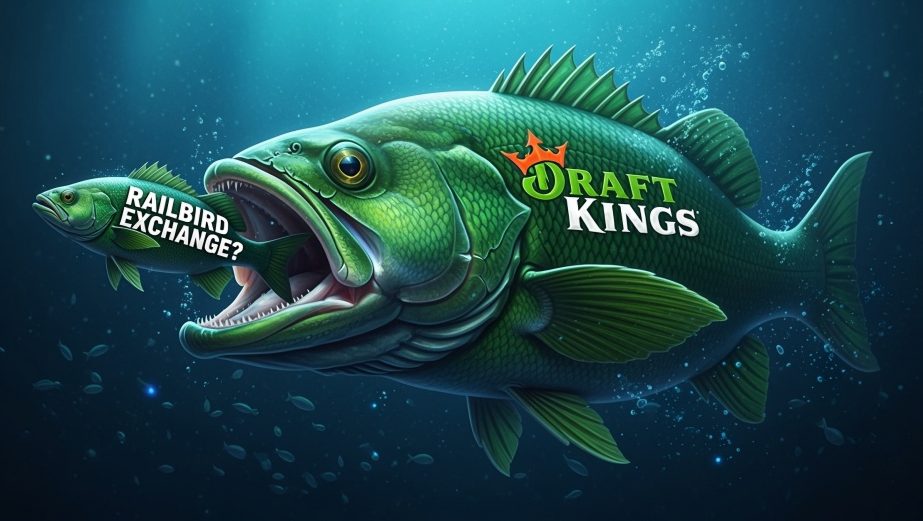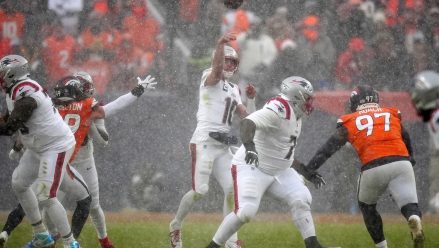Prediction market Railbird could be looking to introduce a new product with variable payouts, a move that could shake up the prediction markets space and allow for trades with bigger potential for both profits and losses.
The Commodity Futures Trading Commission (CFTC) — which approved Railbird as a Designated Contract Market (DCM) in June — published a “no-action letter” concerning the exchange’s contracts Thursday.
The letter mostly concerns technical reporting requirements, and its issuance does not represent a change in the type of products Railbird would be allowed to offer.
However, one detail of the contracts mentioned in the letter may offer a clue about plans to launch a new type of offering that no U.S. prediction market has launched yet.
What are variable payout contracts?
The letter refers not just to contracts with binary outcomes — where users can bet on “yes” or no” outcomes — but also to “variable payout” contracts. Those contracts, as the letter explains, “settle based upon a numerical value of an underlying event such as the percentage increase in average monthly temperature within a given city.”
25-26This means that winnings for a contract could depend on the exact outcome of the event in question, with more unexpected results generating larger payouts. They allow a gambler to stake money on a general trend and win or lose money not just based on whether they were right or wrong, but the degree to which an event occurs.
For example, sportsbooks currently have the Eagles favored by 6.5 points to beat the Cowboys in the NFL season opener. Under a variable payout system, if a bettor places a wager on the Cowboys, and the Eagles were to win by 6 points, the bettor would take a small profit — typically half their stake unit, as the Cowboys covered by half a point. However, if the Cowboys were to win the game by seven points, they would receive much larger winnings — 13.5 times their stake, as the Cowboys covered by 13.5.
On the other hand, if the Eagles were to win by 21 points, the bettor would instead lose many times more than the original stake, usually 14.5 times as much, due to the Eagles covering by 14.5 points.
In the event of particularly large upsets or unexpected blowouts, gamblers could win or lose particularly large sums of money via the variable payout system.
Railbird’s no-action letter notes that its variable payout contracts “have preset price caps and floors that limit potential profit and loss.”
The system, sometimes referred to as “spread betting”, was briefly popular in the U.K. in the 2000s, and came to the U.S. sports betting world via PointsBet, which called its system “PointsBetting.” PointsBet was ultimately acquired by Fanatics, which does not offer the PointsBetting-style bets.
Commodities trading giant the CME Group — which is also regulated by the CFTC — also offers variable payout contracts for trading on the weather.
The no-action letter refers both to Railbird and its clearinghouse, QC. As noted by Adhi Rajaprabhakaran of the 50 Cent Dollars Substack newsletter, QC — as part of QCX — is now owned by global prediction market leader Polymarket.
Polymarket acquired CFTC-registered QCX last month as part of an effort to bring the exchange back to the U.S. The deal between Railbird and QCX, Rajaprabhakaran notes, must have been struck long before Polymarket acquired QCX, because QC is mentioned in a version of the Railbird rulebook that was last updated in November 2024.
According to a July report from Front Office Sports, DraftKings is in talks to buy Railbird. The sports betting giant has been coy about its plans for prediction markets so far, however.
Mentioned in January Kalshi letter
However, if Kalshi is any indication, launching variable contracts may take time to implement.
Kalshi does not currently offer “variable payout” style markets, but received its own no-action letter covering those contracts on Jan. 31. In Kalshi’s case, this was an amendment of a previous no-action letter covering binary contracts.
On Thursday, CEO Tarek Mansour hinted that those markets could be on the way soon. After the prediction market launched 24-hour trading — replacing a system where markets were down from 3 a.m. – 8 a.m. ET every day — Mansour said another in-demand change was “on the way.” Variable payout markets have been discussed as an option on Kalshi’s Discord server, with staff and founders noting that it’s a goal, albeit without plans for a time scale to launch the products.

Other popular suggestions include parlay-type products — which have briefly been offered around events such as the Oscars — and player prop-style bets.
New liquidity rewards on Kalshi?
Meanwhile, Kalshi submitted a letter to the CFTC that could pave the way for it to offer rewards to regular users that provide liquidity on the platform.
Currently, designated “market makers” receive rebates or other rewards from Kalshi for putting up a certain volume of “resting orders” — offers for a bet that another user can take up. This encourages activity on Kalshi markets.
Volume-and-Liquidity-Incentive-Program-August-2025However, these benefits are at the moment only available to select institutional customers. The largest market makers on Kalshi are believed to be Susquehanna International Group and Kalshi’s own in-house market maker, Kalshi Trading.
The new letter would offer a way to change that, at least on designated markets where Kalshi hopes to boost liquidity, by offering incentives to any customer that meets certain criteria.
The incentives use a complicated formula to calculate rebates, which vary based on the amount of “resting” contracts offered, how competitive the prices of those contracts are, and the time the contracts are on offer for. Generally speaking, offering a large number of contracts at a competitive price for a long period of time will lead to larger rebates.
Kalshi had previously notified the CFTC of other liquidity incentive structures, but never actually put them into effect.
Previous structures used more simple formulas — with rebates totaling a certain percentage of the volume of a trader’s accepted contracts — and required high levels of activity to qualify. The new structure allows more opportunities for regular Kalshi traders to receive liquidity rebates, if it is ever implemented.






